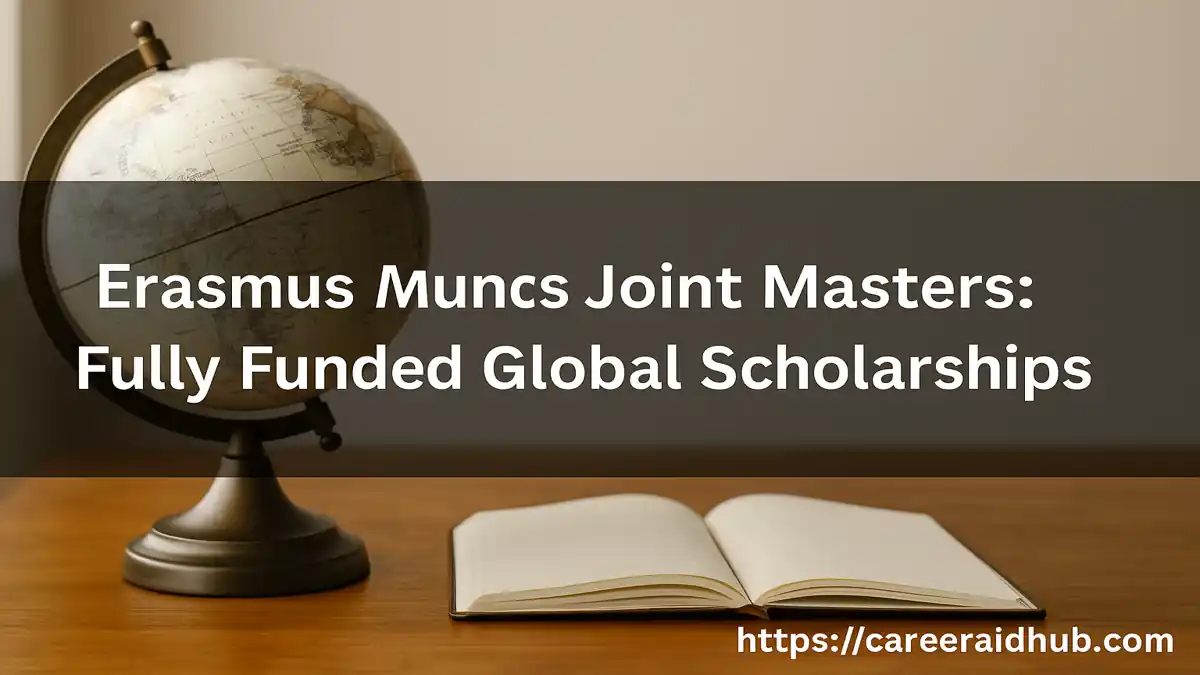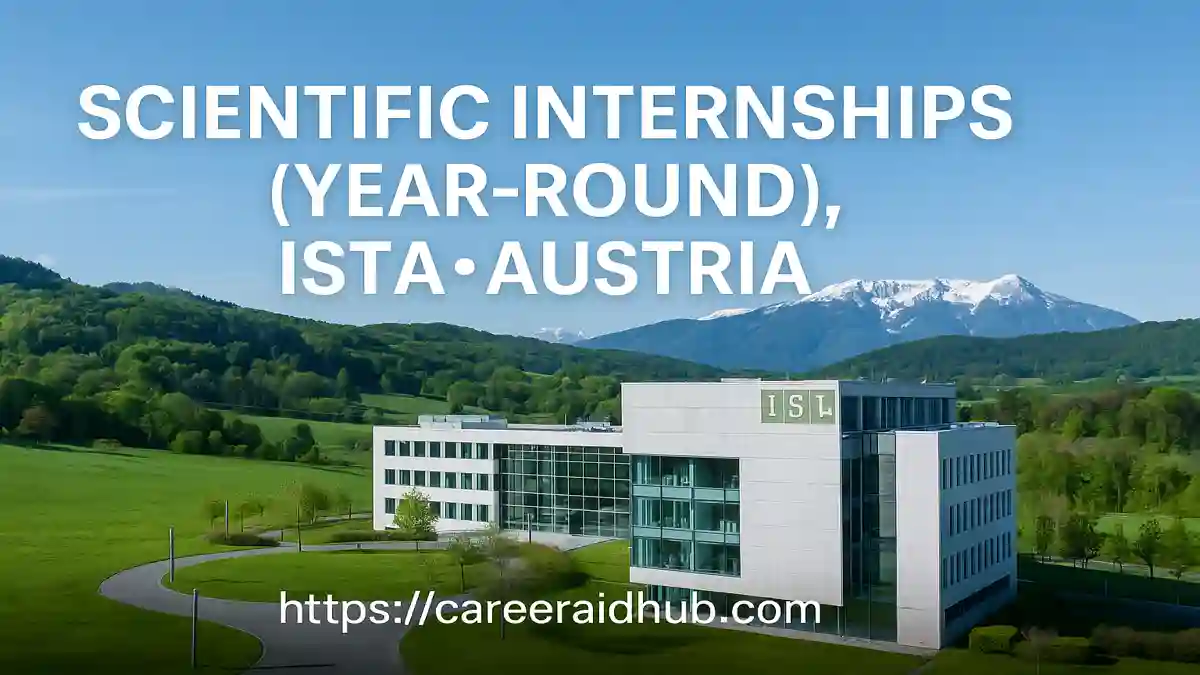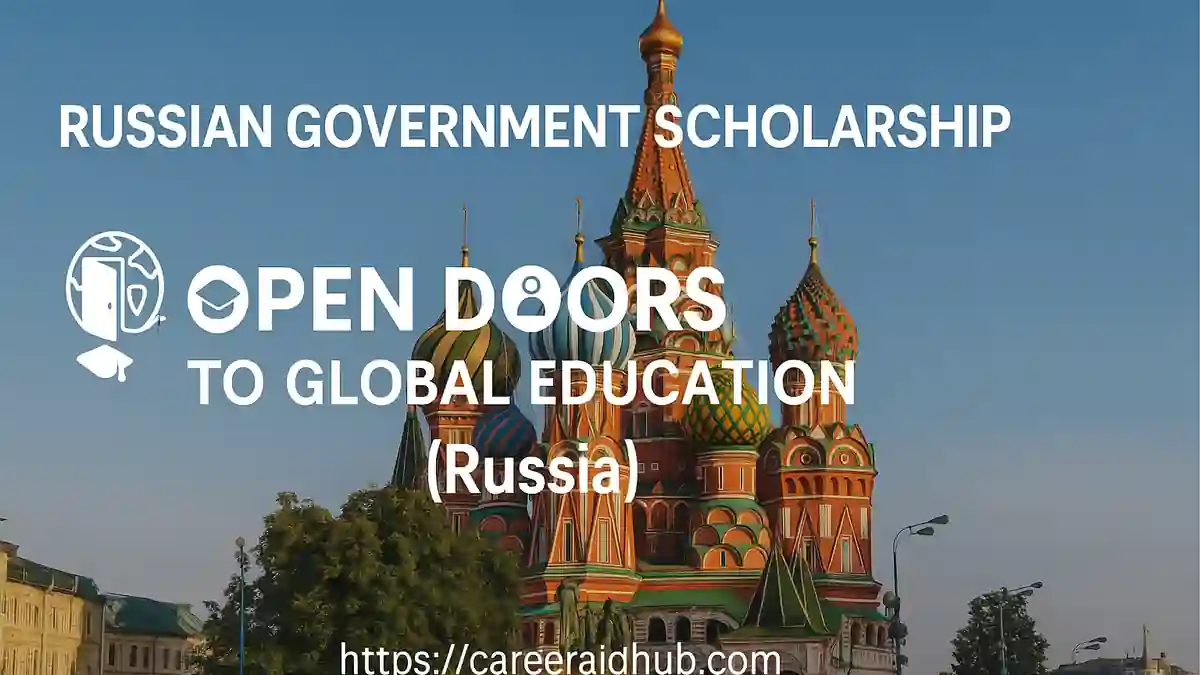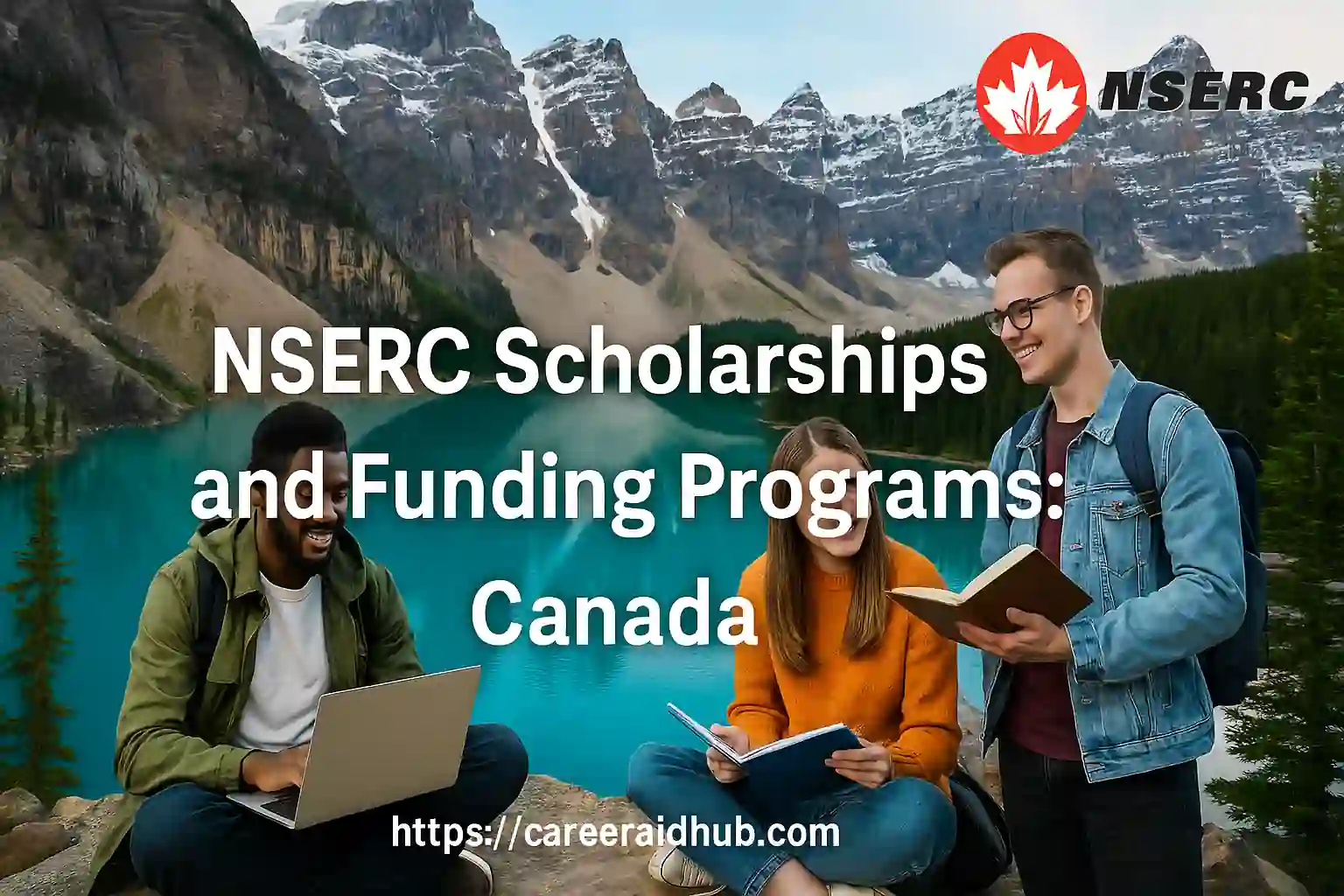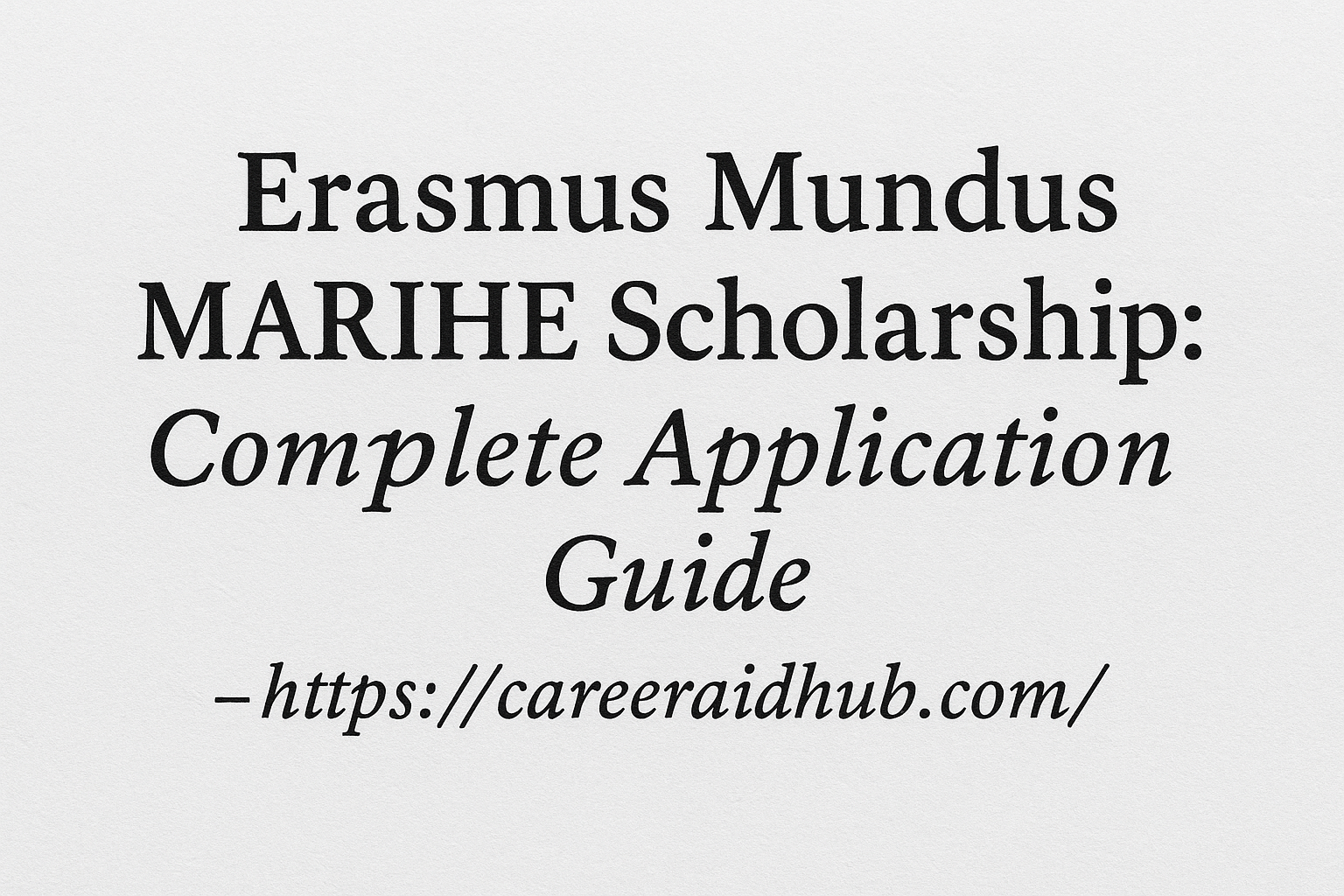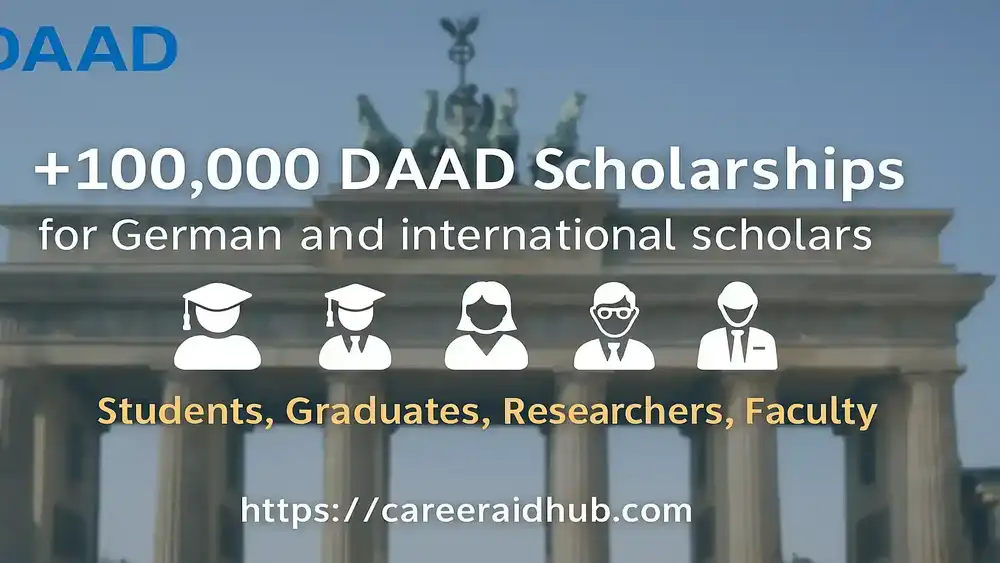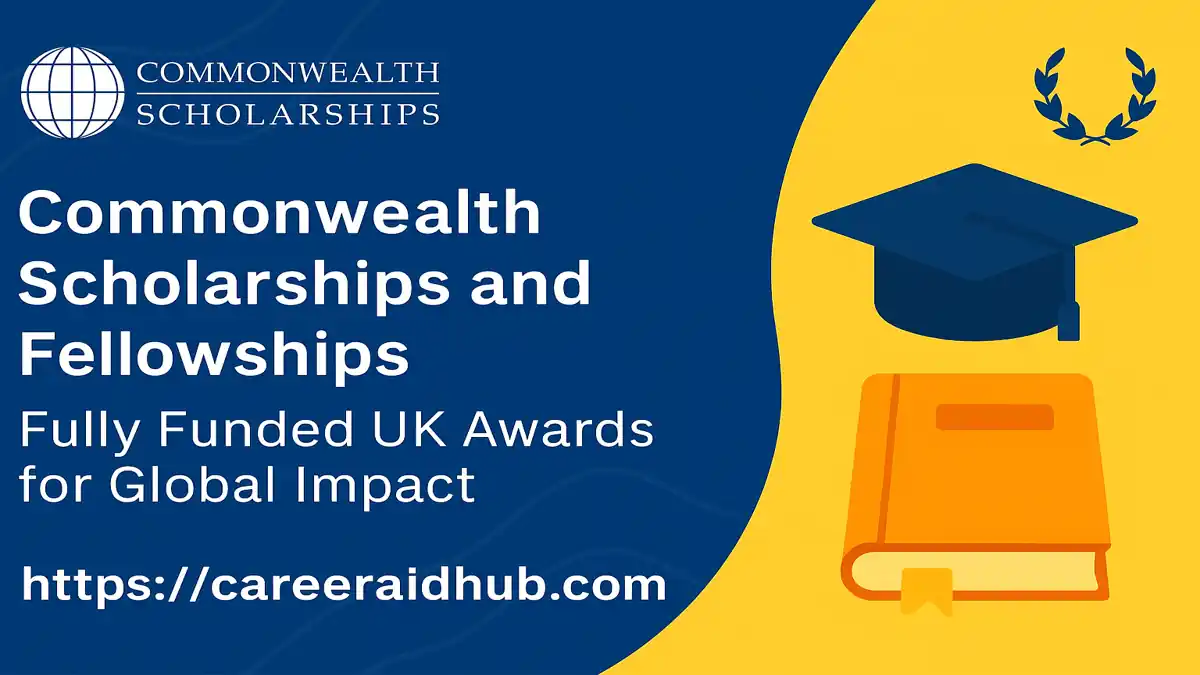Pursuing a master’s degree across multiple countries while receiving full financial support is a dream for many ambitious students and professionals. The Erasmus Mundus Joint Masters (EMJM) program for the 2025–2026 academic cycle offers such a rare and valuable opportunity. Renowned globally for its competitive nature and exceptional academic offerings, the EMJM enables participants to study at top-tier institutions across Europe and, in some cases, partner countries worldwide.
The program is funded by the European Union and is aimed at cultivating high-level academic and professional skills through international collaboration. Applicants benefit from comprehensive support that includes tuition coverage, monthly living stipends, travel allowances, and access to a prestigious alumni network. As a gateway to careers in academia, research, and international development, the Erasmus Mundus Joint Masters provides far more than financial aid—it offers a transformative, multicultural educational experience.
This in-depth article outlines all essential aspects of the Erasmus Mundus Joint Masters, including eligibility criteria, supported fields of study, financial benefits, application procedures, and program deadlines. Whether you are a recent university graduate or a mid-career professional, this guide will help you understand the opportunities and prepare a strong application.
About the Erasmus Mundus Joint Masters (EMJM)
justify;">
Program Title: Erasmus Mundus Joint Masters (EMJM)
Application Status: Open for the 2025–2026 academic session across various disciplines and institutions.
Program Overview and Mission:
The Erasmus Mundus Joint Masters is a flagship initiative of the European Commission under the Erasmus+ program. It aims to foster international cooperation in higher education by offering joint, integrated study programs delivered by consortia of universities. These programs are structured to include study periods in at least two different countries, ensuring that participants gain international exposure and a multidisciplinary perspective.
Program Duration: Between one and two years, depending on the program (60 to 120 ECTS credits).
Mode of Study: Full-time only. Students are required to study in at least two different countries as part of the program’s mobility requirement.
Primary Academic Focus Areas:
-
- Environmental and Earth Sciences
- Engineering and Technological Innovation
- Social Sciences and Cultural Studies
- International Law, Security, and Governance
- Data Science, Artificial Intelligence, and Robotics
- Business, Finance, and Economic Policy
- Pure and Applied Mathematics with Interdisciplinary Emphasis
Eligibility Criteria
Applicants must meet the following requirements to be considered for any EMJM program:
Academic Qualifications
-
- A completed bachelor’s degree (equivalent to 180 ECTS credits) from a recognized institution.
- Final-year undergraduate students may apply, provided they submit proof of graduation before the start of the program.
style="text-align: justify;">Work or Research Experience
-
- Previous professional or research experience is not compulsory, but it is advantageous, particularly for fields like international development or legal studies.
Age Restrictions
-
- There is no upper age limit. Applicants of all age groups are welcome to apply.
Nationality Considerations
-
- Open to candidates from any country. However, additional quotas and funding distinctions may apply to students from Partner Countries (non-EU nations).
Language Proficiency
-
- Valid language test scores are required. These may include IELTS, TOEFL, or other recognized certificates. Specific minimum scores differ by program.
- Some programs require proficiency in additional languages such as French, Spanish, or German, depending on the universities involved.
Additional Conditions
-
- Submission of a personal motivation letter and a well-defined statement of purpose (SOP).
- Certain programs might require entrance exams or online interviews during the selection process.
Application Process
Applicants must follow a structured process to complete their submission. Here is a step-by-step outline:
A: Step 1- Explore the Official Catalogue
-
- Start by accessing the Erasmus Mundus Joint Masters Catalogue
at the official Erasmus+ website. This platform provides detailed information on available programs, eligibility conditions, participating universities, and timelines.
B: Step 2- Select a Program
-
- Review the individual program requirements and choose the course that best aligns with your academic background and career goals.
C: Step 3- Register an Account
-
- Many programs require applicants to create a user account on their dedicated consortium portal to initiate the application process.
D: Step 4- Upload Required Documents
-
- Follow the application instructions specific to each program. Ensure all materials are correctly labeled, in the appropriate format, and submitted within the portal.
E: Step 5- Submit Before the Deadline
-
- Adhere strictly to the application deadlines, considering differences in time zones and submission procedures.
F: Step 6- Monitor for Interviews or Further Instructions
-
- After initial screening, some programs may contact applicants for interviews or clarification on application details.
Required Documents
The following documentation is generally required to complete an application:
-
- Curriculum Vitae (CV): A detailed academic and professional resume, preferably in
the standardized Europass format.
- Motivation Letter: A concise narrative that explains your interest in the program and how it aligns with your academic or professional aspirations.
- Letters of Recommendation: Typically two are needed, written by academic instructors or professional supervisors.
- Academic Transcripts: Official and translated copies of university transcripts.
- Degree Certificates: Verified copies of undergraduate degree certificates.
- Proof of Language Proficiency: Recent test results from IELTS, TOEFL, or an equivalent examination.
- Passport Scan: A scanned copy of the biographical page of your valid passport.
- Additional Forms: Any declarations, financial documentation, or consent forms as outlined by the individual program.
Fields of Study and Interdisciplinary Research Areas
The Erasmus Mundus Joint Masters scheme offers a wide range of academic disciplines that support both traditional and innovative subject matter:
-
- Natural and Environmental Sciences
- Artificial Intelligence, Machine Learning, and Robotics
- Global Economics, Public Policy, and Market Integration
- International Human Rights and Legal Frameworks
- Crisis Management, Peace Studies, and Humanitarian Assistance
- Structural Engineering and Advanced Materials
- Advanced Mathematics with Application in Physical and Social Sciences
Note: Many programs encourage interdisciplinary research. Applicants are welcome to present proposals that integrate diverse academic themes, especially where technology intersects with social development.
Financial Benefits
The Erasmus Mundus Joint Masters provides robust financial support for selected candidates. The benefits typically include:
Tuition Fee Waiver
-
- 100% of tuition fees are covered for the duration of the program.
Monthly Living Allowance
-
- A monthly stipend of approximately €1,000 is provided to cover living costs.
Travel and Mobility Support
-
- Between €1,000 and €3,000 per academic year, depending on travel distance and country of origin.
Installation Allowance
-
- A one-time payment, generally around €1,000, offered to students from Partner Countries to assist with initial relocation expenses.
Health Insurance Coverage
-
- Comprehensive medical insurance valid throughout the study period.
Other Benefits
-
- Assistance with visa applications, access to university housing, networking events, and, in some cases, support for dependents or childcare.
Selection Process
The selection procedure is merit-based and follows a rigorous, multi-stage approach:
1: Eligibility Screening
- Applications are reviewed for completeness and compliance with basic eligibility requirements.
2: Academic and Qualitative Evaluation
- Program-specific committees assess academic achievements, quality of submitted documents, alignment with program goals, and applicant potential.
3: Interview (if applicable)
- Shortlisted candidates may be invited for a remote interview to further assess their suitability.
4: Final Decision and Offer
- Successful applicants receive notifications through email or the program’s application portal.
Evaluation Criteria
-
- Academic performance
- Clarity and relevance of the Statement of Purpose
- Strength and credibility of recommendation letters
- Language competency
- Demonstrated commitment and potential impact
Estimated Timeline:
-
- Application Window: November 2024 to March 2025
- Notification of Results: Between April and May 2025
- Academic Session Begins: September or October 2025
Important Deadlines
Deadlines vary by program, and applicants must consult each program’s page. Below are confirmed dates for selected programs:
-
- MERGED (Global Environment & Development):
- Non-EU Applicants: November 15, 2024 – January 15, 2025
- EU Applicants: January 16 – March 1, 2025
- FRP++ (Structural Composites):
- Currently Open – 2nd Call
- EGEI (Economics of Globalisation):
- Deadline: February 28, 2025
- NOHA (Humanitarian Action):
- Opens: October 1, 2024
- Central Deadline: April 15, 2025
- Final Deadline for Non-EU Applicants: July 1, 2025
- EMAI (Artificial Intelligence):
- Period 1: November 15, 2024 – January 8, 2025
- Period 2: January 9 – March 18, 2025
- Period 3: March 19 – June 5, 2025
- Period 4: June 6 – July 6, 2025
- InterMaths (Mathematics Program):
- Deadline: March 5, 2025 at 1:00 PM (Italy Time)
Tips for a Competitive Application
Applicants can improve their chances of success by paying attention to the following:
-
- Crafting a Strong SOP: Be specific about your goals, program fit, and what you bring to the consortium.
- Formatting Your CV: Use Europass or a clean, readable format. Include internships, projects, language skills, and leadership roles.
- Securing Quality References: Choose recommenders who can provide meaningful insights about your academic or professional work.
- Proofreading and Formatting: Use tools such as Grammarly to review grammar and clarity. Present your application professionally.
Contact Information
For general information, contact the European Education and Culture Executive Agency (EACEA):
For program-specific queries, refer to the websites listed on each consortium’s page within the Erasmus Mundus Catalogue.
Conclusion
The Erasmus Mundus Joint Masters represents an exceptional opportunity for students and professionals seeking international academic advancement. Offering a combination of academic rigor, cultural immersion, and substantial financial support, the program fosters global leadership and cross-border collaboration. With applications now open, this is the ideal time to explore your options and prepare your application.
Apply directly through the official Erasmus Mundus Catalogue and embark on a journey that could redefine your academic and professional future.
Quick Summary Table
| Feature |
Details |
| Program Name |
Erasmus Mundus Joint Masters (EMJM) |
| Host Countries |
European Union Member States and Partner Countries |
| Funding Source |
European Commission (Erasmus+) |
| Program Length |
1 to 2 academic years |
| Study Format |
Full-time, with cross-border mobility |
| Eligible Applicants |
Bachelor’s degree holders from all nationalities |
| Financial Coverage |
Tuition waiver, stipend, travel and installation support, health insurance |
| Eligible Fields |
STEM, Law, Social Sciences, AI, Development, etc. |
| Application Window |
Varies by program; typically between January and March 2025 |
| Official Resource |
Erasmus Mundus Catalogue |
References
- Erasmus Mundus Catalogue
- European Commission – Erasmus+ Program
FAQs about Erasmus Mundus Joint Masters
What is the Erasmus Mundus Joint Masters program? It is a fully funded master’s degree program where students study in at least two countries through a consortium of international universities.
Who can apply for Erasmus Mundus scholarships? Anyone with a recognized bachelor’s degree from any country can apply, regardless of age or nationality.
How many countries do I study in with Erasmus Mundus? Students study in at least two different countries as part of the program’s mobility requirement.
Does Erasmus Mundus cover all expenses? Yes, it typically covers tuition fees, living expenses, travel costs, and health insurance for selected students.
How do I apply for Erasmus Mundus Joint Masters? Apply online through the specific program’s website listed in the official Erasmus Mundus Catalogue.
What documents are required for Erasmus Mundus applications? You need a CV, degree certificate, transcripts, language test scores, motivation letter, and recommendation letters.
What is the Erasmus Mundus scholarship acceptance rate? The acceptance rate is competitive and varies by program, usually ranging between 2% and 10%.
Can I apply to more than one Erasmus Mundus program? Yes, you can apply to up to three different EMJM programs per application cycle.
When do Erasmus Mundus applications open and close? Applications typically open in October or November and close between January and March, depending on the program.
Do I need IELTS or TOEFL for Erasmus Mundus? Yes, most programs require proof of English proficiency through IELTS, TOEFL, or equivalent tests.
Premium Mentorship for a Stronger Application
- Premium Mentorship: personalised 1:1 guidance for this and similar opportunities
- In-depth review of your CV, academic profile, and key statements
- Aligned with international selection criteria so your profile matches what panels expect
- Stronger, more compelling narrative for highly competitive calls
- Step-by-step support from opportunity mapping to final submission (fee-based)
Subscribe Premium Mentorship

